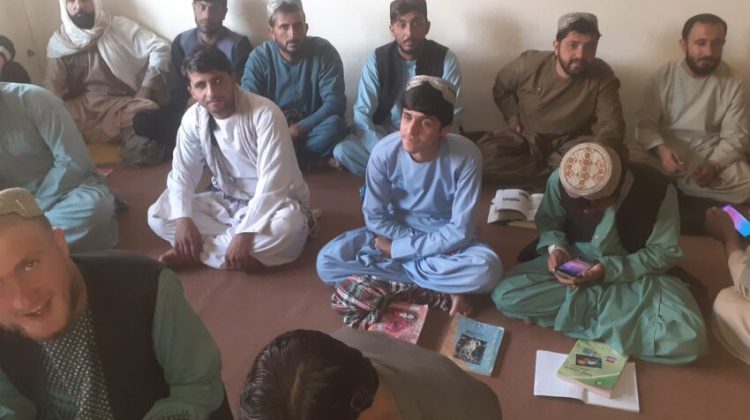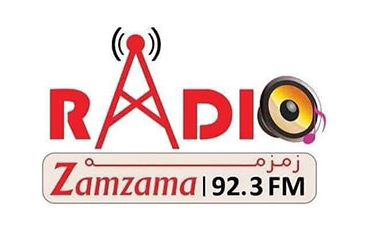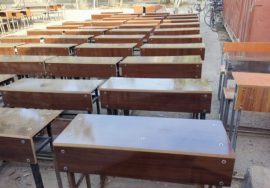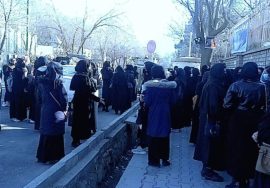
In Helmand, Young Refugees are Deprived of Education
Many of the displaced youth of Helmand say that they have been displaced from their homes many times in the past wars, but they have not been provided with a place to study.
Although the exact number of these young people and children is not yet known, the figures show that 41 thousand of families were displaced from their areas in this province during the past wars.
In Lashkargah night high school, in the center of Helmand, young people whose education was left incomplete due to past wars began to study again.
5-year-old Abdul Aziz, a 12th-grade high school student, who is a resident of the Nade-Ali district, says that he has been studying in his village for the past two decades, which was left unfinished due to the war and airstrikes.
(The situations were very difficult. In the middle of the night when we were sleeping, the war would start. In such situations, we had to protect ourselves).
Abdul Aziz seems optimistic about the future but says that if attention is paid to the education of these young people in the districts, they may also remain illiterate.
(Even now, a number of young people, especially children, are deprived of education. Economic problems and the lack of schools have also caused this).
Burhanuddin Hashemi, a teacher at Lashkargah night high school, says that most of the young refugees who have incomplete education and whose economic situation is a little better than others have given up going to night high school.
He added that even now, a large number of children and youth whose education was incomplete in this province do not have access to primary education. According to him, the participation of organizations in accessing education is commendable:
(Over the past 20 years, thousands of families have been displaced. Now, with the help of organizations, attention has been paid to a part of education.)
Mirwais, a 17-year-old resident of Babaji district, who sells children’s goods by hand in this city, says that he studied up to the 10th grade, but in the past wars, he ran away from his home more than 15 times.
(I have dropped out now, but I will resume my studies if you can help me.)
Atiqullah, a resident of the camp area of the Marjah district, who recently returned to his area and works in the city, says with tears in his eyes that he studied up to the fifth grade.
(If there was no war, I would have progressed more, I would have gone to university.)
Legal experts of Lashkargah city say that educational facilities should be provided for people who are deprived of education.
Aminullah Haqparast says that the government should give the right to education to those children and youth whose education is incomplete due to wars and these people should achieve their dreams.
(The government is obliged to provide education for all citizens and those who missed out on education in the past.)
Mawlavi Mohammad Ewaz Ansari, the director of education of Helmand province, admits that due to the heavy wars and airstrikes in Helmand, not only the education of young people has remained incomplete, but also many school buildings in the center and districts of this province have been left uncompleted.
He added that local schools in the remote areas of Helmand are being built at the expense of UNICEF, which gives many refugee children and youth access to education.
(So far local classrooms have been built and there are plans to build other schools. The Department of Education supervises all educational processes so that students can deliver a good education to society.)
Helmand is one of the war-torn regions of the country, where not only the education sector has been damaged in past wars, but other sectors have also been damaged.



